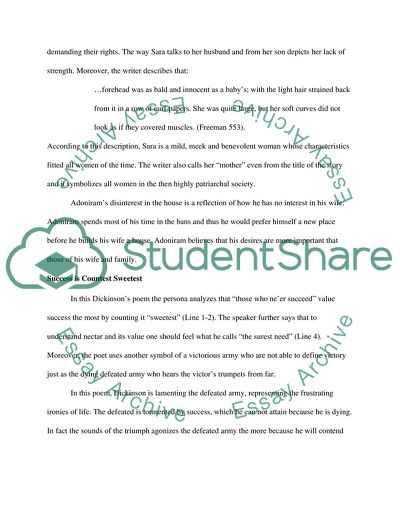Cite this document
(“The Relationship between Freemans Revolt of Mother and Three Dickinson Essay”, n.d.)
Retrieved from https://studentshare.org/literature/1620373-writer-decide
Retrieved from https://studentshare.org/literature/1620373-writer-decide
(The Relationship Between Freemans Revolt of Mother and Three Dickinson Essay)
https://studentshare.org/literature/1620373-writer-decide.
https://studentshare.org/literature/1620373-writer-decide.
“The Relationship Between Freemans Revolt of Mother and Three Dickinson Essay”, n.d. https://studentshare.org/literature/1620373-writer-decide.


